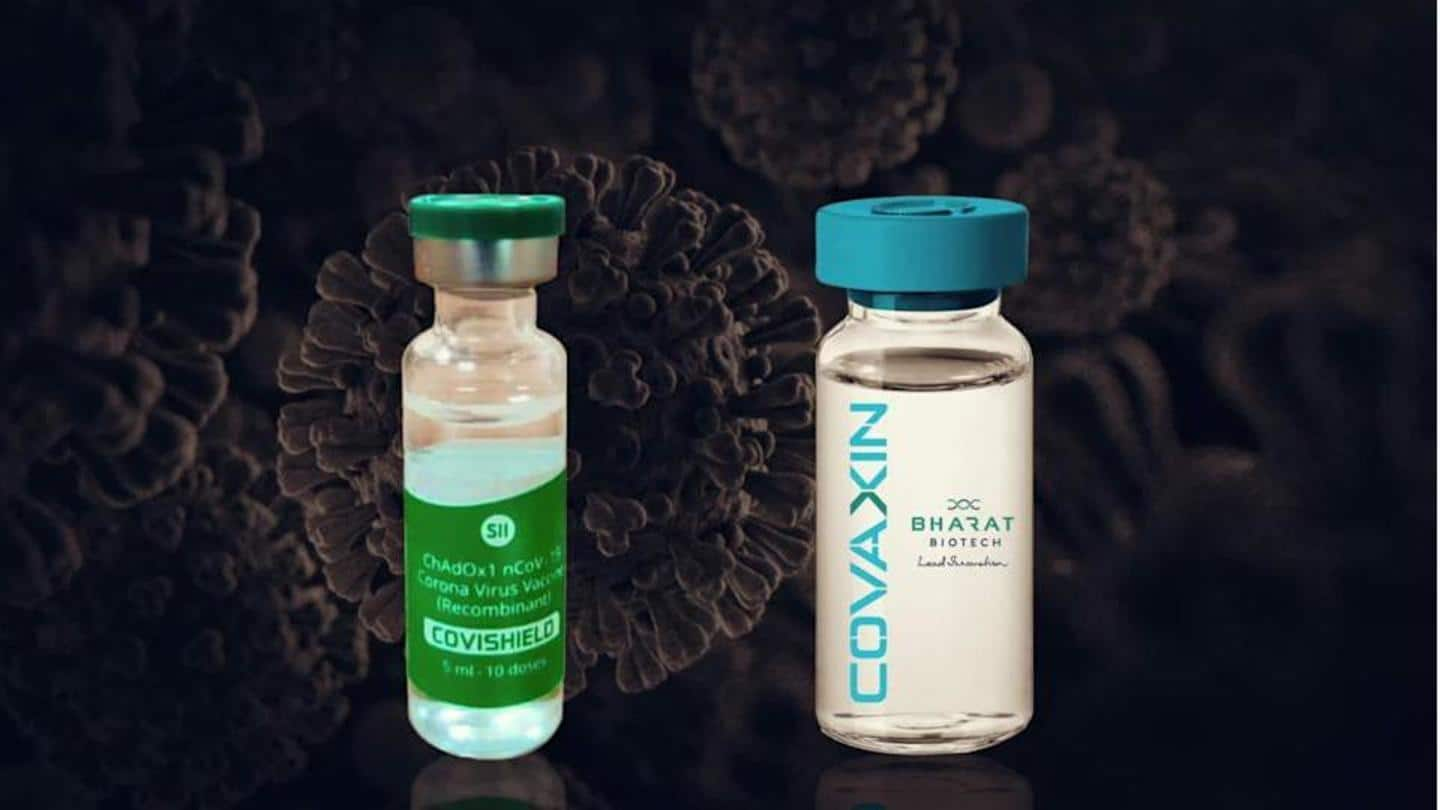
COVAXIN, Covishield effective, but produce fewer antibodies against B.1.617: Report
What's the story
According to a series of early reports authored by scientists at the Indian Council of Medical Research (ICMR), COVAXIN and Covishield—vaccines deemed effective at generating an immune response against COVID-19—appear to generate only half as many antibodies against the B.1.617 variant.
The scientists said this reduced ability to generate antibodies does not diminish the fact that the vaccines continue to be effective against COVID-19.
Information
Laboratories checking potency of COVID-19 vaccines against mutations
Bharat Biotech's COVAXIN and Serum Institute of India's Covishield were designed on the blueprint of the B1 COVID-19 mutation, which became the dominant strain in India by last April. Globally, several laboratories have been analyzing the potency of COVID-19 vaccines against the continually emerging variants.
Samples
ICMR-NIV scientists tested COVID-19 variants of international concern
Since January, scientists at the ICMR-National Institute of Virology (NIV), Pune, have been collecting samples from coronavirus-positive individuals and testing them for prominent variants.
Besides the B.1.617, these include international variants such as the B.1.1.7 (UK variant), the B.1.351 (South Africa variant), and the P2 (Brazil variant).
Three related variants of the B.1.617 now contribute to a large chunk of COVID-19 cases in India.
Analysis
Antibodies generated for B.1.617 variant tested against those for B1
When NIV scientists tested the B.1.617 variant, on antibodies that were extracted from the blood serum of those with two doses of COVAXIN, they found roughly 55% fewer antibodies than the antibodies generated against B1.
When a similar study was repeated with Covishield, it was found that 51% fewer antibodies were generated against the B.1.617 strain as compared to B1.
Other factors
Besides antibodies, T-cells important indicators against future infections
Among those vaccinated, immunity does not solely depend on the number of antibodies and the extent to which they diminish over time.
It also depends on the mobilization of a class of defensive bodies called T-cells, which are believed to direct a more specific kind of attack against the virus.
The T-cells destroy the virus, unlike antibodies, which only block replicating virus cells.
Assessment
Covishield, COVAXIN 'almost similarly' protective against B.1.167 variant
Dr. Samiran Panda—the head of the Epidemiology Division at the ICMR, Delhi, and a co-author of the papers—said that both Covishield and COVAXIN were "almost similarly" protective against the B.1.617 variant.
"The antibody tests do not account for the T-cell response... The average level of antibodies don't always capture the true range of antibody production," Dr. Panda told The Hindu.
Comment
Two-fold reduction not 'serious at all', says CCMB official
Commenting on the results, Rakesh Mishra—former Director, Centre for Cellular and Molecular Biology, Hyderabad—said a two-fold reduction "wasn't serious at all."
Independent studies are underway at the Hyderabad-based institute to estimate the neutralization activity against various strains.
"A tenfold or greater level of reduction may be important but then again, different laboratories have varying approaches to conducting such tests," he noted.
Other studies
Reduction nearly four-fold with single dose of Pfizer: Cambridge study
Vinod Scaria from the CSIR-Institute of Genomics and Integrative Biology said that the B.1.617 was found to be resistant to an antibody called Bamlanivimab, but much less of a threat than the South Africa variant.
Studies by microbiologist Ravi Gupta of Cambridge University showed that the reduction in neutralization involving B.1.617 was nearly four-fold in people who had one dose of the Pfizer vaccine.